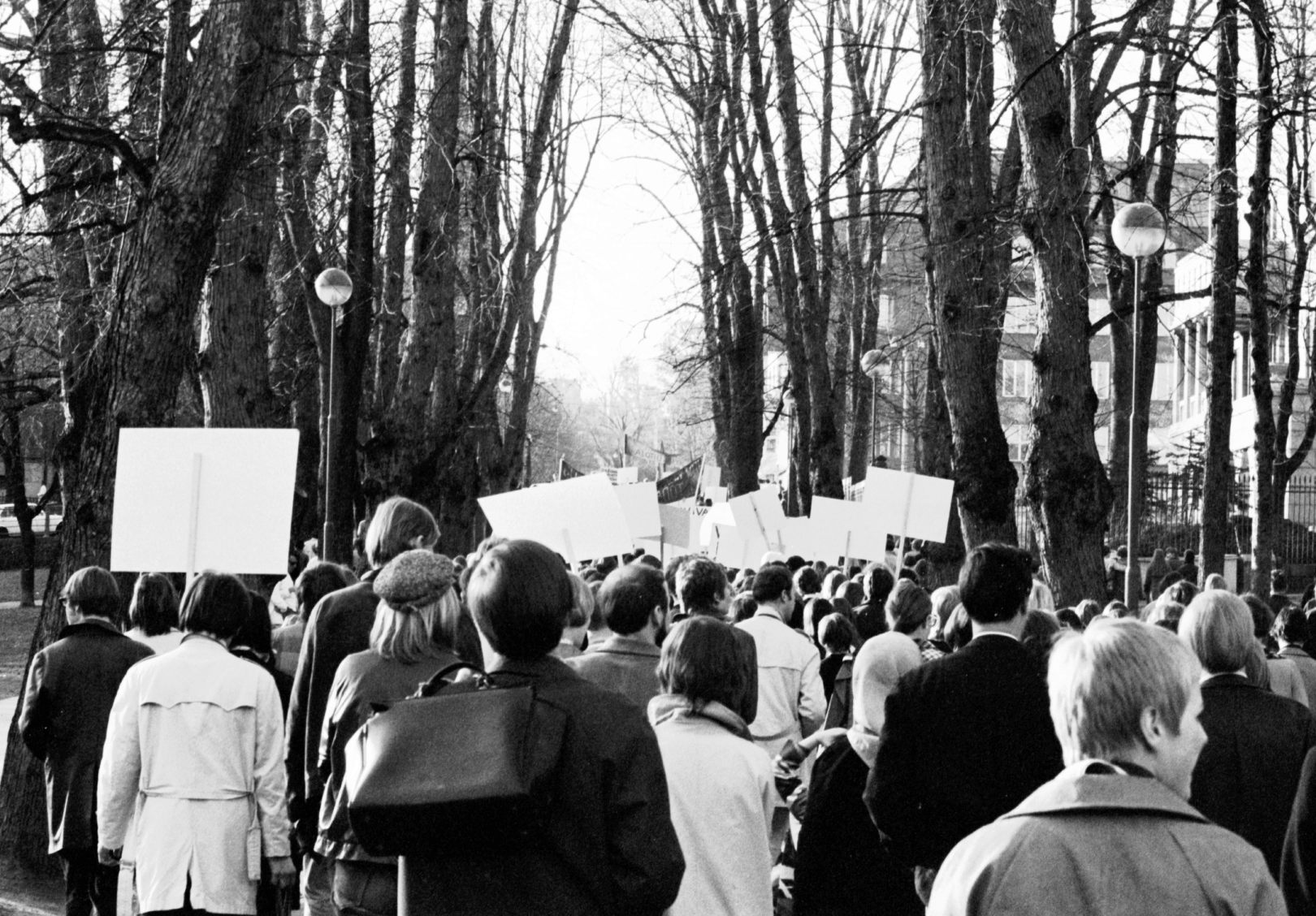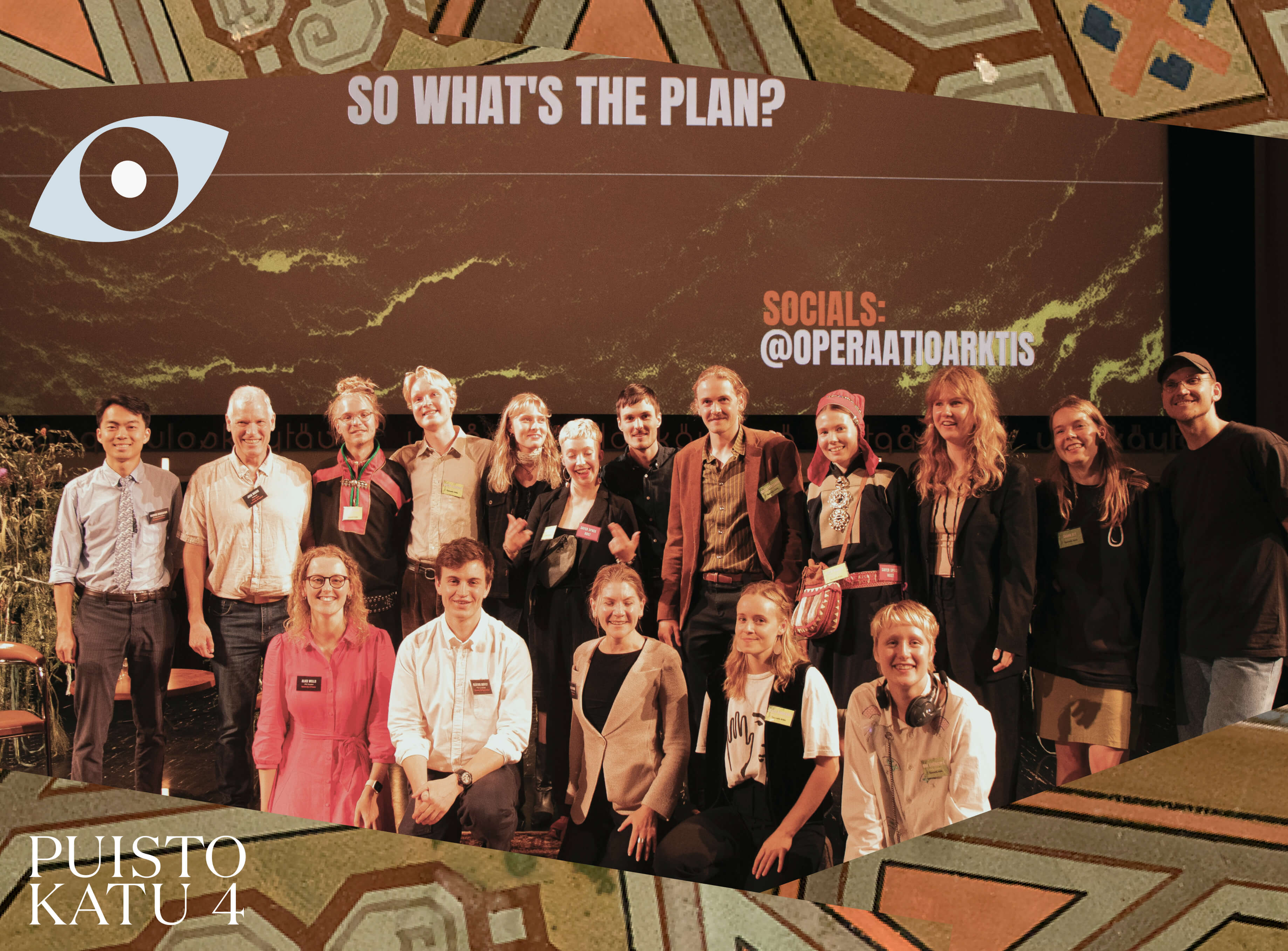

Operaatio Arktis writes about the conditions for change and how to create them in a socially sustainable way.

Momentum means lift, momentum, moment. It is something that is bound by time. Momentum means that the time is ripe.
The success of various civic movements is often explained in history as a result of the conditions being right and the time being right. That there was momentum. This explanation ignores the fact that the circumstances were favourable largely because some people made them favourable. Someone had to organise the movement and inspire the listeners. Someone paved the way.
At Operaatio Arktis, we talk about climate repairing as a new climate paradigm, where climate interventions are seen alongside emission reductions as part of the same climate repairing project. In our work, we have focused on the situation of Arctic sea ice and possible climate repairing techniques to save it.
The resources of societies to build sustainable infrastructure will be rapidly depleted by the construction of floodwalls and climate shelters, or the relocation of cities or entire nations. Climate interventions could prevent climate disasters that shift the focus from long-term goals to everyday survival. And cooling the planet could protect our forests – vital carbon sinks – from burning.
It is dangerous to rely uncritically on oneself and one’s ability to recognise the truth and what is best for others.
The climate change debate needs to move forward quickly, but it is not enough on its own. It must be reciprocal, humble and reflective. It is dangerous to rely uncritically on oneself and one’s ability to recognise the truth and what is best for others.
We cannot know with certainty what impact the debate and research on climate intervention will have on reducing emissions. What if climate interventions were to further undermine the motivation for societies to make the transition to sustainability? Or if oil states, fossil fuel companies and the animal industry were to start using climate interventions as a smokescreen for their destructive work?
There is also a danger that we are easily talking over those who are on the front line of experiencing the effects of the Arctic melt. Especially as the debate on the Arctic increasingly revolves around security policy issues, it is worth remembering that the Arctic is not just a snowy and icy playing field for the superpowers, but home to millions of people and many cultures. Many of these are still today subjugated to the central power of the South.
The world is an unjust place. Some control, others are ignored. It is therefore clear that climate interventions will be made ignoring the voices of the marginalised unless we proactively work to prevent it from happening. Listening to marginalised groups must start at the first stage.
We who are bringing this debate into the mainstream are responsible for framing it. Do we frame the debate on climate intervention as technological, geopolitical, or perhaps as questions of climate justice and building a new, fairer world?
Momentum needs to be created – let’s do it quickly and by listening to each other.
The ball is now in our court and time is limited. The elements of the Earth system hurtling towards tipping points are gathering momentum for their own changes.
In these changes, the Amazon is becoming a savannah and the continental ice sheet a wet pothole. We need to create a counter-momentum – the momentum and support for research that comes from systemic change – to see if these processes can be stopped.
Momentum needs to be created – let’s do it quickly and by listening to each other.